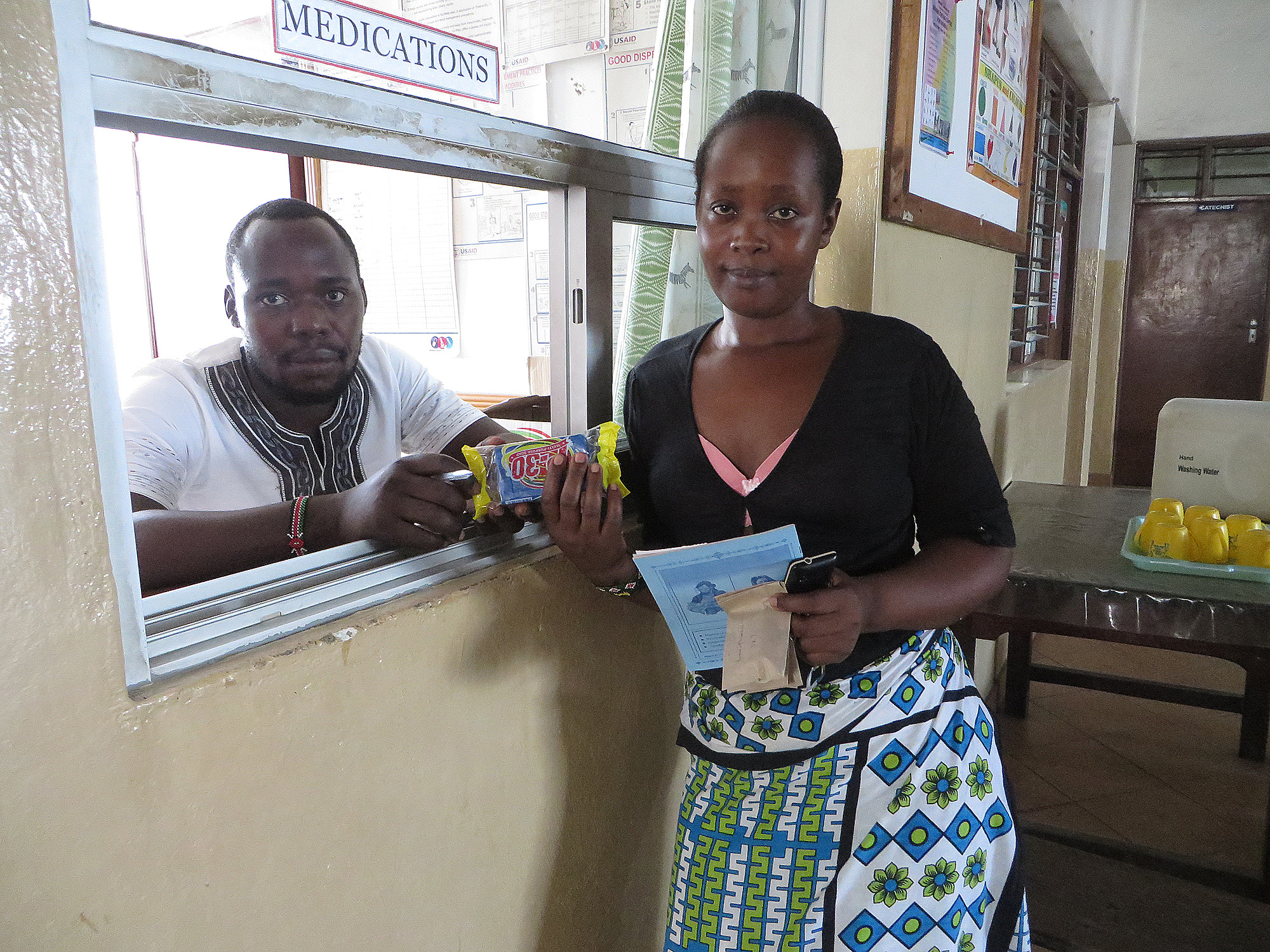
Dalmas, our clinical officer, giving out soap at the dispensary
The coronavirus has changed our world. Here in Mombasa, Kenya, we are still in the early stages of this pandemic. The government is monitoring hot spots, restricting movement and educating the public about prevention.
At St. Patrick’s Parish and Dispensary in the informal settlement of Bangala, we are trying to be proactive as we anticipate the spread of the virus. It will be devastating to everyone. We decided that our first project was to buy soap—lots and lots of soap, almost 7,000 bars! Why buy soap? It is well documented that one of the best ways to prevent the spread of the virus is through frequent thorough handwashing.
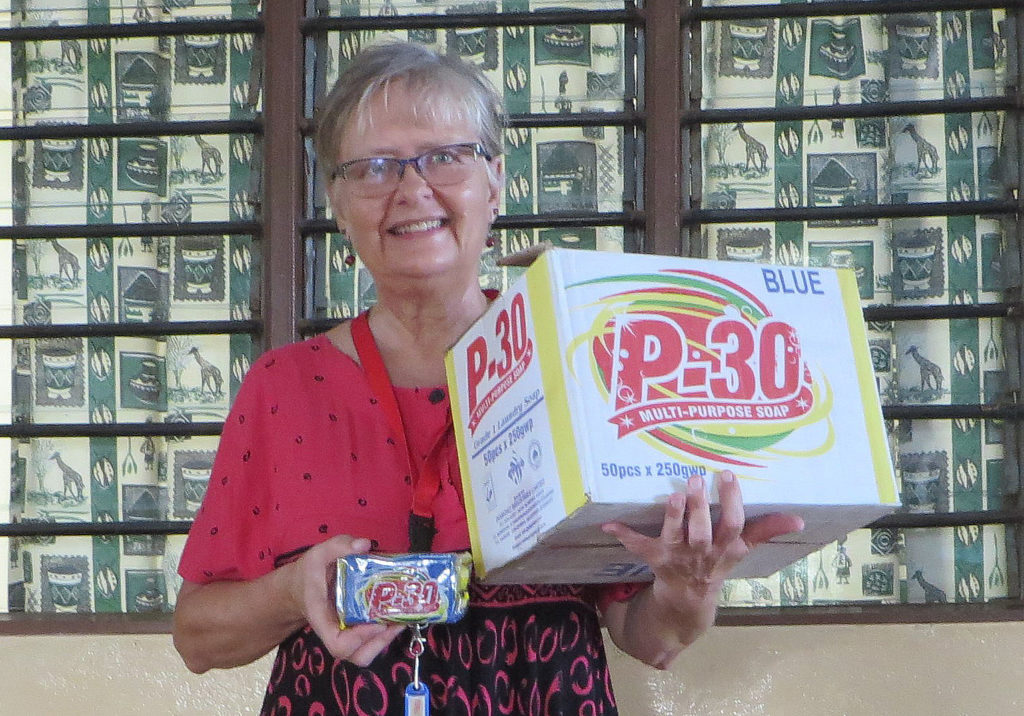
Kathy Flatoff with the first box of soap.
That is a major challenge in informal settlements because sanitation is very substandard. Pit latrines are shared by several households, and here in Bangala the people do not have running water; they fill their jugs when the water truck arrives. Educating people about the importance of handwashing seemed a good place to start, but first we needed to provide them with soap!
For poor people, soap is a luxury item. When you barely earn enough to feed your family, it is unlikely that you will buy a bar of soap that costs 30 shillings (30 cents). Thanks to donors, we purchased 124 cartons of soap (50 bars each). At the dispensary we give out a bar to everyone who comes in. We also gave a supply to St. Patrick’s small church groups (known as jumuiyas) for their distribution. With every bar, we are including education on handwashing. We are trying to lessen the impact of this virus in our poor community. We plan to order more soap as funding becomes available. It is an easy way to make a difference.
We are also working on a larger project. We have identified 300 of the neediest families in Bangala and the neighboring settlement of Kibarani. Jobs have already been lost, families have no income, and people will soon be facing starvation. There is no government leadership that advocates for poor people. There seems to be no plan to help them. Parents will become desperate as they try to feed their families.
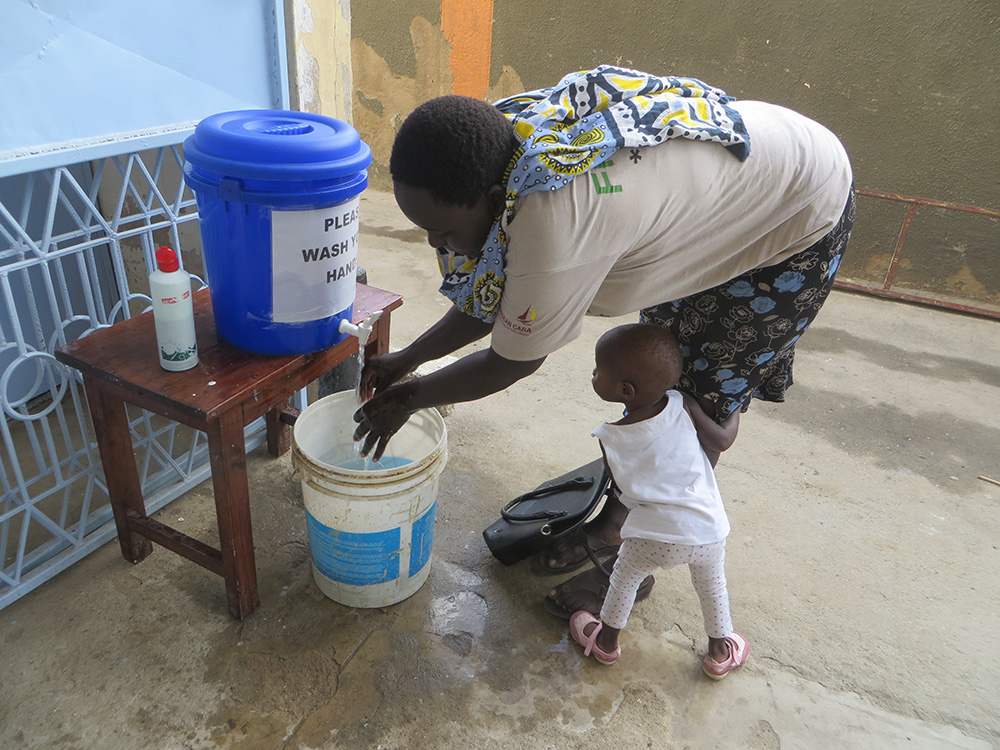
The word is out: Wash your hands.
Although everyone in Bangala and Kibarani is living below the poverty level, some families are poorer than others. There may be a single mother who is unable to work because of cancer or tuberculosis and she is trying to care for her children. There may be an old, frail widow who lives alone or a grandmother who is raising her grandchildren because their mother died and their father is not involved. The stories are heart-wrenching, and their needs are many.
Our plan is to provide these selected families with a small stipend of 500 shillings ($5) per week. That does not seem like much, but here those 500 shillings can buy 2-pound bags of rice, beans and flour. That is enough to feed a small family for two to three days. We received names from village and church leaders, neighbors, etc. of families who are in desperate straits. The names were meticulously reviewed—our funds are limited so we truly want to help the neediest of the needy.
I have donated some of my ministry money to the soap fund and to the needy family fund, and I will continue to do so, as able. We are especially concerned about the needy family project; we would like to expand it, but we also need to sustain it, possibly for months. Everything is dependent on funding.
Countries in the global South, like Kenya, need your help. We cannot get through this on our own. We are dependent on God and others to help us.
Photos by Kathy Flatoff

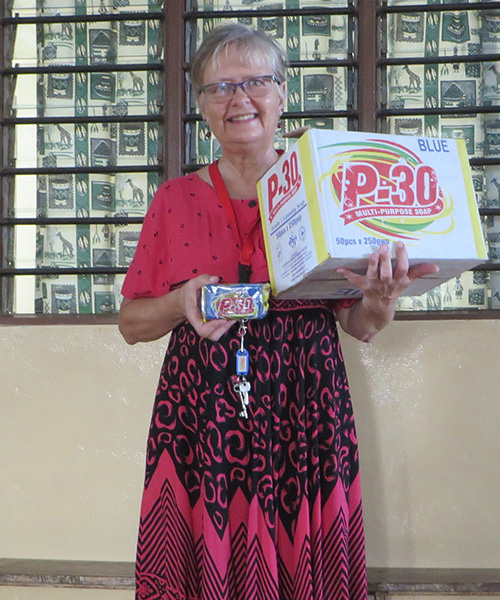

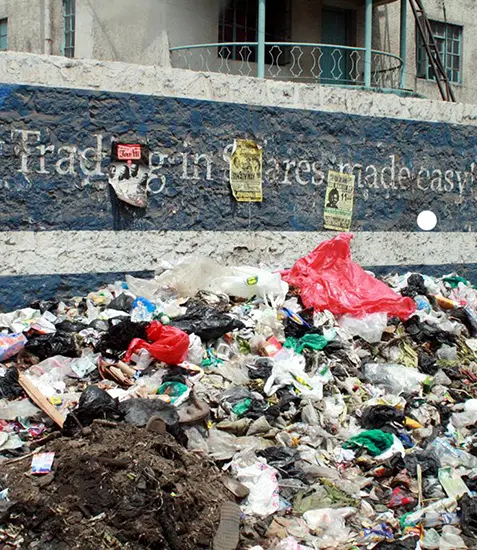
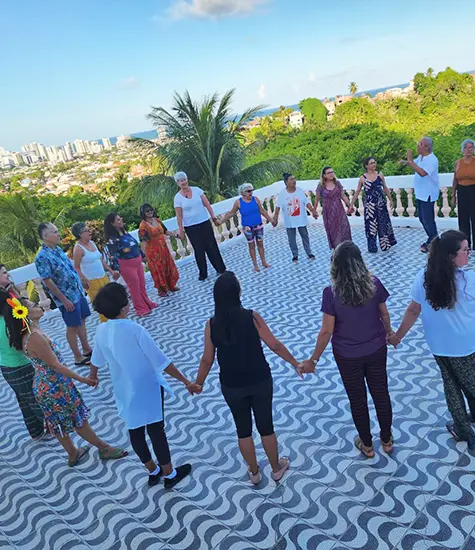
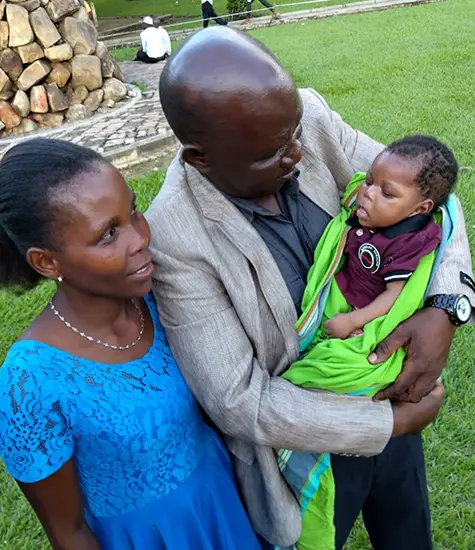




Great work Kathy!!! I know how well you have all worked with the parish leaders to identify and provide for those most in need. Very smart to send them this money through the Mpesa = phone money transfer system so that there is less congregating of people and they can then buy what they need and thereby support the small businesses of others in the community. Not to mention all the EDUCATION you are doing through the St. Patrick clinic in Bangladesh. You are the only reputable health care provider. You give not only good quality care but compassion. You have a wonderful staff to work with. Please give them all my admiration, prayers and greetings. Mungu awabariki ninyi nyote = God bless you all!!!